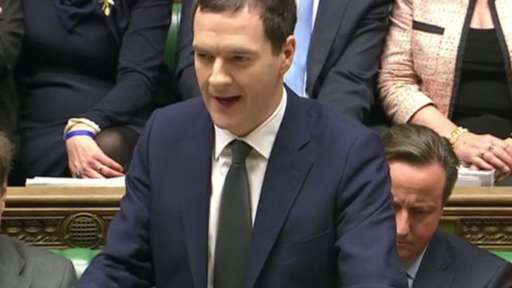The Chancellor of the Exchequer, George Osborne, rose to give his Spending Review and Autumn Statement to the House of Commons at 12.33pm.
The Chancellor George Osborne has taken to the dispatch box to deliver his Autumn Statement and Spending Review.
He will set out his latest round of cuts aimed at eliminating Britain’s budget deficit.
There will be £20bn worth of cuts to unprotected government departments.
There will also be detail on how the chancellor will pay for measures to reduce the impact of planned tax credit changes.
John Bercow advises MP to take up yoga. How insensitive. Doesn't he know about cultural appropriation? #spendingreview
— Jonathan Simons (@PXEducation) November 25, 2015
George Osborne will pledge to “turn generation rent into generation buy“ under plans in the mini-Budget for the largest affordable housebuilding programme in more than 30 years.
Boosting property ownership is top priority, the Chancellor will say as he outlines plans for 400,000 new homes in England.
But the Autumn Statement and Spending Review will also detail some of the deepest cuts to public spending in recent memory.
Mr Osborne will set out how he intends to slice £20 billion from spending and £12 billion from welfare – as well as raising £5 billion in a crackdown on tax avoidance – to meet his commitment to balance the nation’s books in five years.
The Chancellor will say the settlement is about picking priorities and insist tackling the “crisis” in home ownership is crucial.
He is expected to say: “In the end, spending reviews like this come down to choices about what your priorities are. And I am clear: in this Spending Review, we choose housing. Above all, we choose homes that people can buy.
“For there is a crisis of home ownership in our country.
“We made a start in the last parliament, and with schemes like Help to Buy the number of first-time buyers rose by 60%.
“But frankly we need to do much more. Today we set out our bold plan to back families who aspire to buy their own home.”
Measures include direct funding for developers and a change in planning rules to open up land for the creation of 200,000 new starter homes with a 20% discount for first-time buyers under 40.
Some £2.3 billion has been earmarked for the properties, which will have a maximum value of £250,000 outside of London and £450,000 in London.
Funding totalling £4 billion will go to housing associations, local authorities and the private sector to provide 135,000 Help to Buy shared ownership homes by 2021.
The properties will be available to households earning less than £80,000 outside London and £90,000 inside the capital.
The Government will also invest £200 million in 10,000 homes that will be available to rent at around 20% below the market rent to allow tenants to save for a deposit while they rent. The houses will be sold after five years, with the tenant given first refusal.
Around 8,000 specialist homes for older residents and people with disabilities will be built using £400 million of funding for housing associations and the private sector.
The Spending Review will set out how £4 trillion worth of taxpayers’ money will be spent over the next five years.
Police chiefs have warned about their ability to respond to a Paris-style attack if they are hit by further deep cuts to frontline policing, but the Home Office, alongside ministries such as Local Government, Justice, Energy and Culture, is expected to face budget reductions of 20%-30%.
A commitment to meet the Nato target to spend 2% of GDP on defence will allow a £12 billion rise in funding for military equipment, bringing the total to £178 billion over the next decade.
The NHS in England has been promised an additional £3.8 billion for frontline services in 2016/17, while ministers have pledged to bring in a fairer funding formula for schools and the Government will continue to meet the United Nations target of spending 0.7% of GDP on international aid.
Higher-than-expected borrowing in October has led to predictions the Chancellor may miss his £69.5 billion deficit target for this year and be forced to downgrade the £10 billion surplus forecast for 2020.
